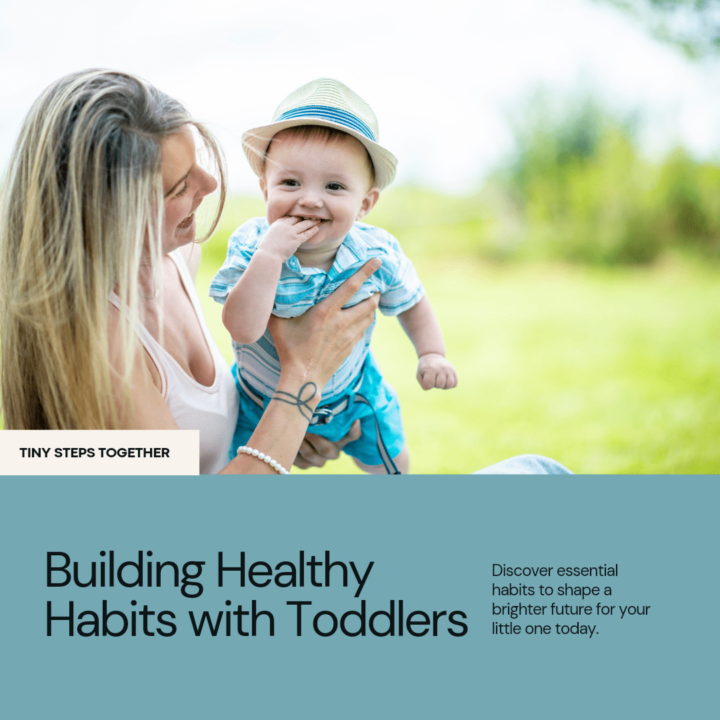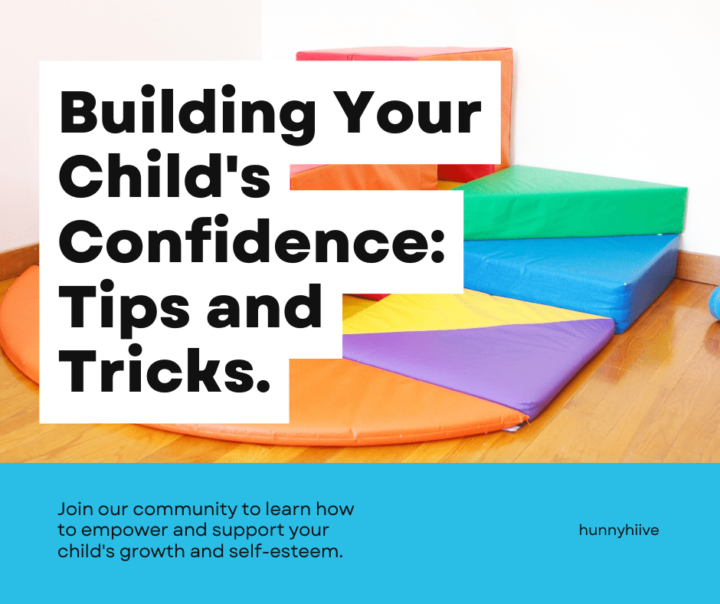
Top 5 Habits to Start with Your Toddler
Healthy Habits Development
Establish a Consistent Routine:
Toddlers thrive on predictability and routine. Set regular times for meals, naps, playtime, and bedtime. Consistency is key in healthy habits development as it helps them feel secure and aids in their emotional development.
Encourage Independence:
Foster independence by allowing your toddler to do simple tasks on their own, like picking out clothes, putting away toys, or feeding themselves. Encouraging autonomy builds confidence and self-esteem, supporting the development of healthy habits. Independence is a key aspect in the journey of instilling healthy habits.
Promote Healthy Eating Habits:
Introduce a variety of nutritious foods early on to establish healthy eating habits. Offer fruits, vegetables, whole grains, and lean proteins. Make mealtime enjoyable by involving your toddler in food preparation and keeping a positive atmosphere. These small steps contribute significantly to their healthy habits development.
Encourage Regular Physical Activity:
Encourage active play to support physical development. Take walks, visit the playground, or engage in indoor activities like dancing or playing with balls. Physical activity not only promotes gross motor skills but also helps with mood regulation and sleep.
Foster Language Development:
Engage in conversations with your toddler and encourage them to express themselves. Read books together, sing songs, and describe daily activities. This helps build vocabulary, communication skills, and lays the foundation for literacy, which is a significant part of healthy habits development.

By incorporating these habits into your toddler’s daily routine, you can support their overall development and set them up for a happy future. Ensuring that these are developed from an early age is crucial for lifelong success in their healthy habits development.
Bonus Content
Bonus: Making Toddler Habits Stick – Tips for Long-Term Success
Building healthy habits with your toddler is a rewarding journey, but it can also be challenging. Toddlers are naturally curious and full of energy, which can make consistency a bit tricky. But don’t worry—establishing these habits early on can lead to long-term benefits for your child’s development and your family’s overall well-being. Here are some practical tips to help make these habits stick and ensure they become a natural part of your toddler’s daily routine.
1. Be Patient and Persistent
Patience is key when it comes to habit-building with toddlers. They are still learning how the world works, and repetition is crucial. You might not see immediate results, but don’t get discouraged. Keep introducing the habit consistently, and celebrate small wins along the way. Remember, it’s not about perfection but progress. Every step forward, no matter how small, is a victory worth acknowledging.
2. Create a Fun and Engaging Routine
Toddlers thrive on routines, but they also love to have fun. Incorporate games, songs, or stories into your daily habits to keep your little one engaged. For example, if you’re working on a bedtime routine, try singing the same lullaby every night or reading a favorite bedtime story. Making the routine enjoyable will help your toddler look forward to it and make the habit feel less like a chore and more like a fun activity.
3. Lead by Example
Toddlers are keen observers and often mimic the behavior of their parents or caregivers. If you want your toddler to develop certain habits, make sure you’re practicing them too. Whether it’s brushing your teeth together, eating healthy meals as a family, or practicing good manners, your child will learn a lot by watching you. Being a role model for your toddler can make it easier for them to adopt the habits you’re trying to instill.
4. Offer Positive Reinforcement
Positive reinforcement is a powerful tool when it comes to habit-building. Whenever your toddler successfully follows through with a habit, offer praise or a small reward. This doesn’t mean you need to give a treat every time; a simple high-five, a hug, or words of encouragement can go a long way. Letting your child know that they’re doing a great job will motivate them to keep up the good work.
5. Be Flexible and Adaptable
While consistency is important, it’s also essential to be flexible. Life happens, and there will be days when routines are disrupted, or habits are forgotten. That’s okay! The goal is to build habits over time, not to be rigid. If something isn’t working, don’t be afraid to adjust your approach. Maybe your toddler isn’t ready for a certain habit yet, or perhaps a different method will work better. Being adaptable will help you and your toddler find what works best for your family.
6. Make It a Team Effort
Involve the whole family in building these habits. When everyone is on the same page, it creates a supportive environment for your toddler. Siblings can be great role models, and having a unified approach helps reinforce the habit throughout the day. Whether it’s meal times, playtimes, or bedtime routines, making it a team effort ensures that your toddler sees these habits as a normal part of family life.
7. Celebrate Milestones
As your toddler begins to master new habits, take time to celebrate these milestones. Whether it’s successfully potty training, sticking to a bedtime routine, or remembering to say “please” and “thank you,” acknowledging these achievements is important. Celebrations can be as simple as a special outing, a favorite snack, or even just a lot of extra praise and excitement. Celebrating milestones not only reinforces the habit but also boosts your toddler’s confidence and sense of accomplishment.
Conclusion
Building habits with your toddler takes time, patience, and a lot of love, but the effort is well worth it. By using these strategies—being patient, creating fun routines, leading by example, offering positive reinforcement, staying flexible, making it a team effort, and celebrating milestones—you can help ensure that the habits you start today will stick with your toddler for years to come.
Remember, the goal isn’t perfection but progress. With consistency, encouragement, and a little creativity, you can set your toddler on a path to healthy and positive lifelong habits.




